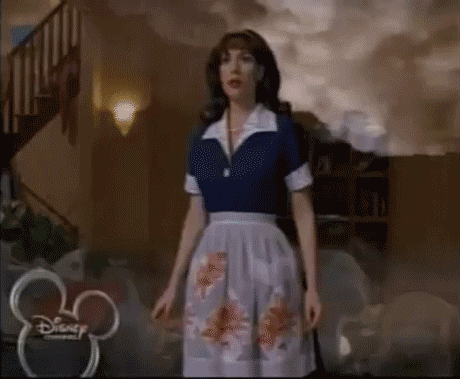Alexandra Truong
Blog #1, Option 1A
September 3, 2013
Gothic Literature and Culture
Ray Bradbury’s “The Veldt” was a short story depicting the influence of a “smart house” on those who lived within it. The home was fully equipped to take care of any needs that a family may have, including and not limited to preparing dinner, washing the children, or making the bed. In fact, the house did everything for them that upon the threat of turning off the home, Peter was frighteningly appalled. “Would I have to tie my own shoes instead of letting the shoe tier do it? And brush my own teeth and comb my hair and give myself a bath?” (Bradbury 272) I thought that “The Veldt” by Ray Bradbury was extremely similar to Disney’s Smart House (1999).
Both share the motif of the uncanny and/or the supernatural, in that both homes were out of the ordinary and almost went beyond what is actually believable. It is my opinion that at the time that Smart House was released in 1999, the motif of the uncanny/supernatural would have been more apparently extreme. I say this knowing that in this day and age, homes can do much more than pervious years. This is not to say that I have ever heard of a home that can clean itself, prepare dinners, and bathe children. Homes have advanced in ways that make living and inhabiting within them much easier. For instance, you can now have your home solar powered, set alarms or even observe the premises over your phone or computer.
Upon first reading “The Veldt”, I immediately thought of the movie Smart House as the two shared the common theme and location of a “super house”. The scene in “The Veldt” where the parents are locked within the nursery by the upset computer that had been disabled (or the upset children) reminded me of the scene in Smart House where the “house” took on a human’s body in the form of “Pat” who felt that after everything she had done for the family, was being neglected or unappreciated. The way I interpreted the similarity was that in both situations, the computer, which is supposed to just be a machine that followed orders was all of a sudden taking on a human form or developing feelings. This is significant because feelings are only commonly and attributed to human beings, not computers. The difference being that you program a computer to do a task, one does not program a computer to “feel.”
Bradbury, Ray. “The Veldt.” American Gothic Tales. Ed. Joyce Carol Oates. New York: The Penguin Group. 264-277. Print.

No comments:
Post a Comment